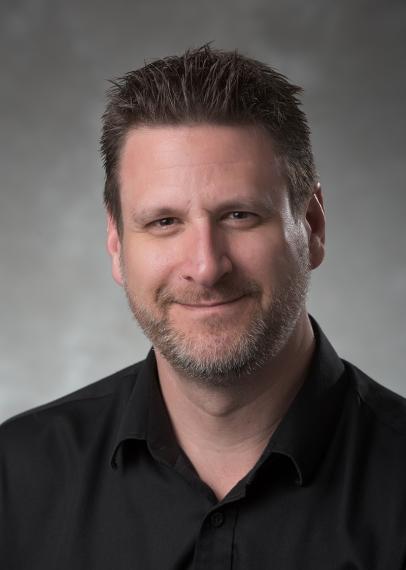David Kribs

Find Related People by Keyword
Education and Employment Background
Dr. David Kribs received his PhD from the Department of Pure Mathematics at the University of Waterloo in 2000. From 2000-2002, Kribs held an NSERC Post-doctoral fellowship and worked as a Visiting Assistant Professor and Visiting Researcher at several institutions including the University of Iowa, Lancaster University, and the University of Waterloo. He went on to work as a Visiting Assistant professor at Purdue University between 2002 and 2003. In 2003, Kribs joined the Department of Mathematics and Statistics at the University of Guelph where he is now a full Professor and recently held a University Research Chair in Quantum Information.
Research Themes
Kribs is a member of the Quantum Information group at the University of Guelph where his research centres around the mathematics of quantum information. He explores quantum error correction, entanglement theory, quantum cryptography, and the connections between theoretical and experimental quantum information science. Key research themes include:
- Quantum Error Correction. Protecting quantum information from undesirable noise has the potential to become a breakthrough in the field of quantum computing. Prof. Kribs explores problems like environmental noise with novel investigative methods that use mathematics-based tools and tricks from fancy math topics like matrix theory, operator algebras, and functional analysis.
- Operator Structures. A basic problem in quantum information theory is how to identify a state from a set of known states on a composite quantum system, using only quantum operations that are local to the individual sub-systems. Prof. Kribs is interested in operator structures, such as operator systems and operator algebras.
- Quantum Entanglement Theory. One of the most mysterious and challenging topics in modern science is quantum entanglement, which allows for simultaneous action at a distance for separated particles, contradicting our basic intuition about the world. In quantum information and its applications, entanglement is a central resource, but there is still a limited understanding of the notion. Prof. Kribs and collaborators work at the heart of quantum entanglement theory, harnessing mathematical tools and creating new approaches for the study when necessary.
Highlights
- International Academic Advisor, African Institute for Mathematical Sciences (2014-present)
- University Research Chair in Quantum Information, University of Guelph (2013-2020)
- Mitacs Accelerate (2017-present) and NSERC New Frontiers in Research Fund – Exploration (2022-2024)
- Associate Member of the Institute for Quantum Computing and Affiliate Member of the Perimeter Institute (2004-present)
- Ontario Early Researcher Award (2006-2011), NSERC Discovery Accelerator Supplement (2008-2010), and NSERC Discovery Grant (2004-present)
Media Coverage
Quantum Information Group
- U of G, CEPS: Untangling the Mysteries of Quantum Theory
- U of G, CEPS: A Quantum Leap
AIMS
- CEPS: U of G Research Receives $120,000 in Mitacs Funding
- Guelph Mercury Tribune: Guelph prof AIMS to help Africa add it all up